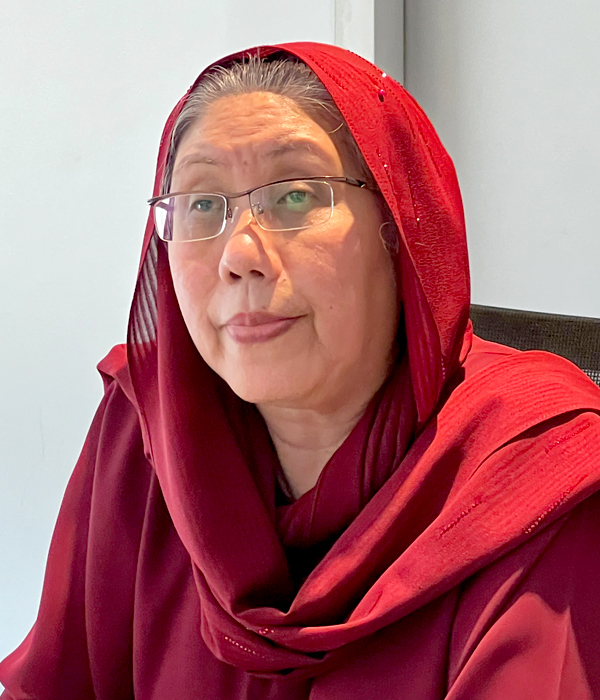By the Accountants Today Team in collaboration with the MIA Competency Framework Development Team
Accountancy education is critical to nurturing talents who are future fit and relevant to the needs of business and finance. In line with its nation building purpose, the Malaysian Institute of Accountants (MIA) is committed to developing a pipeline of accountancy talents who are competent, ethical, resilient and adaptable for today’s increasingly challenging and volatile economy.
Towards this end, the MIA’s Education Board (the Board) is tasked with establishing requirements on professional accountancy education and ensuring consistency with global standards especially the IFAC International Education Standards (IES) as issued by the International Accounting Education Standards Board (IAESB).

In a recent interview with the MIA e-AT team, Datuk Zaiton Mohd Hassan, Chair of the Education Board spoke at length on the direction and plans of MIA to ascertain what employers really want and to close the gaps in producing market ready accountancy professionals. “The approach that the Education Board will take is very much of engaging to get a lot of feedback from the market, from employers or MIA Committees. We also intend to engage with the Malaysian Qualifications Agency (MQA) and the Ministry of Higher Education (MOHE) because we are all working for the same purpose, to build talents who can contribute positively to nation building. I think it can be a meeting of minds where we can achieve a lot more together.”
Datuk Zaiton brings a wealth of experience and passion to this role. As a founder and the long-time CEO of the Malaysia Professional Accountancy Centre (MyPAC), her mission focuses on helping students from underprivileged families to pursue professional accountancy qualifications and break out of the poverty trap. Today, MyPAC is one of the leading scholarship providers in Malaysia to select, support and nurture deserving Bumiputeras to become professional accountants. She clearly empathises with MyPAC beneficiaries as the profession has been a gateway and catalyst for her own professional and personal achievements.
Starting out as an auditor with a Big 4 firm, Datuk Zaiton moved into banking, holding various senior positions in Treasury, International Operations and Group Strategic Planning at the country’s largest banking institution, Maybank. She is an icon in the credit rating space, having set up the country’s second rating agency, Malaysian Rating Corporation Berhad, where she was President for eight years. Datuk Zaiton was also tapped for prominent leadership roles in the profession, as former Deputy Chair of the International Federation of Accountants’ Professional Accountants in Business Advisory Group and former Vice-President of the MIA for two terms. A lifelong advocate for good governance and staunch proponent of integrated reporting, she continues to advise boards of PLCs and PIEs, and currently serves as Chairman of Malaysia’s first digital bank, GX Bank Berhad and Chairman of the Board Risk Management Committee of Sunway Berhad.
Following are excerpts of the interview with Datuk Zaiton which have been edited for length and clarity:
Q: What role does the MIA Education Board play in developing the future relevance of the profession?
The Education Board is very important within the context of the Malaysian accountancy profession as our work relates to building the future pipeline of accountancy professionals who can contribute to nation building.
While there is a perception that accountants work in accounting firms, in audit and in the finance department, their role is much more impactful, and I think we need to correct this misnomer. Many top CEOs are accountants. Banks need to employ accountants in credit evaluation and risk management roles too.
Having been in banking for a long time, I have seen many businesses fail because they did not give attention to managing their cash flow. In fact, accountants can make good entrepreneurs. Having an accountancy background is a good prerequisite for being in business, because cash flow to business is like blood for a human, where if the blood stops flowing, you are dead. Therefore, in a wider context, accountants will always be relevant particularly in the financial and capital markets.
MIA has two roles to play in the profession – development of the profession and the disciplinary process, which is the governance part of the profession. If you are successful in developing accountancy professionals with the right qualities, the governance part takes care of itself. Developing accountancy professionals goes beyond just making sure they get a degree or professional qualification. You have to develop accountants with the right values, integrity, and ethics so that when they actually go out there and work, they work in the public interest, wherever they are.
Therefore, the Education Board should not just be looking at numbers, in terms of how many thousand accountants are being churned out. Rather, we need to look at the calibre of accountants we produce. Do they have the right values in order to be useful to the country and to serve the public interest? We also have to engage with the market and the customers, namely employers, to assess whether we are producing what they want. At the end of the day, we want them to be proud of being an accountant under the MIA framework, and that they feel appreciated and do their jobs as accountants who have internalised and demonstrated the values expected of accountants.
Q: What has the MIA Education Board done so far, and what is in the pipeline?
After I assumed the Chairmanship of the Education Board, the first thing we did was to review our terms of reference to ensure that they are in accordance with our purpose. We have also mapped out our work plan for the financial year from July to June of the following year (FY2024). Under our work plan, we are going to meet four times a year to accomplish what we want to do.
In terms of the work plan, there will be extensive engagements with employers in order to understand their perspectives and expectations. These engagements will help us identify the gaps and where we need to improve. We have also asked to have a roundtable with the chairpersons of MIA Committees who are themselves employers as well as with the Disciplinary and Appeals Boards and the Financial Statement Review Committee within MIA to get their feedback on correcting the wrongs and closing the gaps.

Q: What are the gaps that you expect to identify?
As the deputy chair of the IFAC Professional Accountants in Business advisory group, I attended a meeting to which IFAC invited one of the large talent search firms. They shared the attributes that large employers look for when multinationals engaged them to search for CFOs. The top attribute listed is not technical accounting knowledge because that is a given.
The top attributes are the ability to articulate and collaborate. Going forward, there is a notion that the accountancy profession might be irrelevant in future because it will be overtaken by digitalisation. What you have to understand is that the role of the accountant has changed. If you are still thinking of the role of accountants as preparing accounts, then you are definitely irrelevant. But the ability to articulate and the ability to actually communicate and collaborate with people is highly lacking in accountants today when they enter the accounting profession.
First, language. The challenge is not that our graduates do not know their stuff, but they are not proficient in English. English cannot be avoided because it is the language of business. Graduates who attend interviews and request to speak only in Bahasa Malaysia will be at a disadvantage because business is conducted in English.
Second is the ability to collaborate which is more than just teamwork. In order for others to want to collaborate with you, there must be something that you bring to the table, be it technical knowledge, or you are the custodian of valuable financial and other data within the organisation, strategic thinking, etc.
Take ESG (environmental, social, governance) as an example. Now in the accountancy profession, we talk about value creation. This means how we actually take the companies forward as measured by the triple bottomline of people, planet and profit. Therefore, as a CFO (chief financial officer) and as a board member, you should be able to contribute to the discussion on ESG. A lot of the material on ESG is in English. Without being proficient in English, how do you even begin to access and understand the material out there?
To address this requires a two-pronged approach. One is to improve their language proficiency and thus their ability to engage, articulate and communicate. Two, and I am still trying to figure this out, is how to inculcate the lifelong learning mindset in accountancy professionals. You cannot just close your books after achieving your degree or professional qualification and hope to remain relevant.
You have to continue to learn, you have to learn to unlearn and learn new things. We have to imbue this habit of constantly learning and unlearning starting in the university. This is where MIA also plays a critical role in providing continuous professional development which is the key to upskilling and being future fit.
I also think humility is another quality that is very, very important. As you go up the ladder, you have to be humble, otherwise who is going to collaborate with you? Learning providers can take the initiative to nurture the ability to collaborate by encouraging a lot of discussion in class. Classroom collaboration can include developing the ability to get the smarter ones or those who are on the fast track to help their peers so that no one is left behind. When you get into the workforce, these qualities are also important.
Q: What is your view on the future relevance of the profession?
The profession itself needs to change in order to remain relevant. If you look at accountants only as preparers of financial statements, you are as good as gone. So how do we actually move forward?

First, we must appreciate that accountants are very rich in data. Within the company, you are in control of all the financial and non-financial data, therefore they need you. But how do you actually develop that role? That’s why, we usually see accountants in the investor relations space. The CFO must be able to articulate the story behind the figures when facing analysts. In order to do that, you have to have a very good understanding about the business.
Sometimes I get invited to speak to directors of public listed companies. I say to them, look, you must understand the business. When you look at the outcomes as a member of the audit committee, those are just snapshots or a picture at a point in time. You need to understand what is actually behind the picture. For example, if you are a board member of a bank, you must know how banks make money. Equally important, you must know how banks can lose money. So, you must like the industry you are in enough to find out more. The quest for knowledge never stops and the business will not stop for you as things change every day especially post COVID, amidst heightened geopolitical tensions.
Q: Please share some updates on the MIA Competency Framework
First, the Competency Framework intends to broaden the profession. The profession is more than just chartered accountants, and the Framework will include the accounting technicians, among the three introduced levels. From a technician, then they can develop themselves into an accountant and then a chartered accountant. For each level, this Competency Framework is linked to the IFAC International Education Standards (IES) as issued by the International Accounting Education Standards Board (IAESB). So, we have the levels of accounting technician, accountant and then chartered accountant and this reflects the reality in life. When you start working, you go through those phases, from accounting technician you level up and there is a requirement in the market for every level. The competencies are different because they meet different objectives. This is where we follow the IES framework. So, if you are at the Chartered Accountant level, you need to fulfill certain requirements which are spelled out under IES.
It is really about helping people along the whole value chain. You can start by having a diploma and then through experience and continuing professional education, you gain those competencies and meet the requirements and expectations of the market at every level. So, if you want to call yourself a chartered accountant, then you had better be able to meet the market requirements and the competencies expected of a chartered accountant. At the end of the day, it is the market that determines the standards required.






